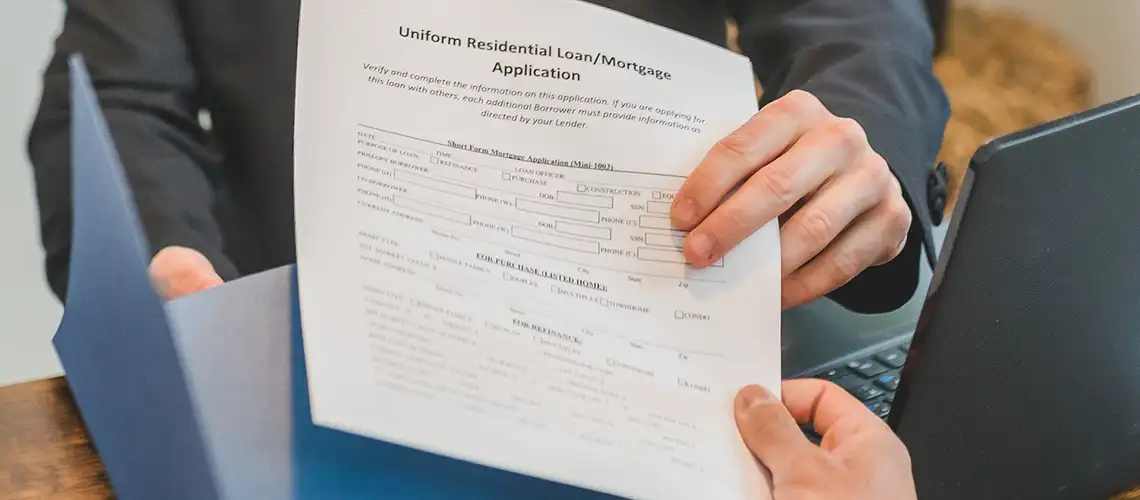Premier Property Valuation in Melbourne
Welcome to Langford & Jones
Our Services
Residential Property Valuations
Commercial Property Valuations
Development Site Valuations
Rental Property Appraisals
Portfolio Valuations
Expert Witness Services
Advisory and Consultancy
Reach out to us today to explore how our expertise can serve you.
Latest News

Why Hire a Professional Property Valuer in Melbourne?
Melbourne’s real estate market is known for its diversity and complexity. With varying property types, market trends, and location-specific factors, obtaining an accurate property valuation is essential for any real estate transaction. This article discusses the importance of hiring a professional property valuer in Melbourne and how their expertise can benefit you.
The Importance of Accurate Property Valuation in Melbourne
In a market as dynamic as Melbourne’s, accurate property valuation is crucial. It provides a solid foundation for buying, selling, or investing in property. An accurate valuation ensures that you understand the true worth of the property, helping you to make informed decisions and avoid costly mistakes.
Benefits of Hiring a Local Property Valuer
A local property valuer brings several advantages:
- Market Expertise: A local valuer has a deep understanding of the Melbourne property market, including trends, demand, and area-specific factors that influence property values.
- Accurate Comparisons: With knowledge of recent sales and market conditions, a local valuer can provide more accurate comparisons, ensuring a precise valuation.
- Regulatory Compliance: Local valuers are familiar with Melbourne’s zoning laws, planning regulations, and other legal requirements that may affect property valuation.
Understanding the Melbourne Property Market
Melbourne’s property market is influenced by several factors, including:
- Population Growth: Melbourne’s growing population drives demand for housing, impacting property values.
- Infrastructure Development: New infrastructure projects, such as transportation and amenities, can increase property values in certain areas.
- Economic Conditions: The broader economic environment, including interest rates and employment rates, also plays a role in shaping the market.
Understanding these factors is essential for accurate property valuation, making the expertise of a local property valuer Melbourne invaluable.
How a Property Valuer Can Protect Your Investment
A professional property valuer can protect your investment by providing an unbiased and accurate assessment of a property’s value. This information is critical for negotiating the best price, securing financing, and making informed investment decisions. With the guidance of a qualified valuer, you can navigate Melbourne’s competitive real estate market with confidence.
When to Consider Hiring a Property Valuer
There are several scenarios where hiring a property valuer is beneficial:
- Selling a Property: Ensure you set the right asking price to attract buyers while maximising your return.
- Buying a Property: Verify that the property’s asking price is fair and reflective of its true value.
- Refinancing: Obtain an accurate valuation to secure the best possible mortgage terms.
- Investing: Evaluate potential investment properties to ensure they meet your financial goals.
Conclusion
In Melbourne’s fast-paced and ever-changing real estate market, hiring a professional property valuer is essential. Their local expertise, market knowledge, and commitment to accuracy can protect your investment and ensure you make informed decisions. Whether you’re buying, selling, or investing, a reliable property valuer is your best ally in achieving success.

What to Consider When Hiring a Property Valuer
Hiring a property valuer is a crucial step in the property buying, selling, or refinancing process. A professional valuation ensures that you have an accurate understanding of your property’s market value. Here are some key factors to consider when hiring a property valuer in Brisbane.
1. Qualifications and Accreditation
Ensure that the property valuer you hire is qualified and accredited. In Australia, property valuers should be certified by the Australian Property Institute (API) or the Royal Institution of Chartered Surveyors (RICS). These accreditations guarantee that the valuer adheres to industry standards and possesses the necessary skills and knowledge.
2. Local Market Knowledge
A property valuer with in-depth knowledge of the Brisbane property market can provide more accurate valuations. Local market knowledge is crucial as it allows the valuer to consider specific factors that may affect property values in the area, such as recent sales, local amenities, and future developments.
3. Experience and Specialisation
Experience matters when it comes to property valuation. Look for a valuer with a solid track record and experience in valuing properties similar to yours. Additionally, if your property has unique characteristics or is part of a niche market (e.g., commercial, industrial, or luxury properties), ensure that the valuer has expertise in that specific area.
4. Comprehensive Reports
A good property valuer will provide a detailed and comprehensive valuation report. This report should include an overview of the property, an analysis of comparable sales, the methodology used for the valuation, and any factors that may affect the property’s value. Clear and transparent reports help you understand how the valuation was determined and can be useful for negotiations or legal purposes.
5. Reputation and Reviews
Research the valuer’s reputation by reading online reviews and testimonials. Positive feedback from previous clients can give you confidence in the valuer’s ability to provide accurate and reliable valuations. Additionally, consider asking for references to speak directly with past clients about their experiences.
6. Cost of Valuation
While cost should not be the sole factor in your decision, it is essential to consider the valuation fees. Ensure that you understand what is included in the fee and whether there are any additional charges. Comparing quotes from multiple valuers can help you find a fair and competitive price for the service.
7. Communication and Customer Service
Effective communication is vital throughout the valuation process. Choose a valuer who is responsive, professional, and willing to answer your questions. Good customer service ensures that you stay informed and confident in the valuation process.
Conclusion
Choosing the right property valuer in Brisbane is essential to ensure you receive an accurate and reliable property valuation. By considering the factors mentioned above, you can make an informed decision and hire a qualified professional who meets your needs.
If you need expert Property Valuation Brisbane services, contact our specialists today to get your property valued accurately and efficiently. Our team of experienced valuers is ready to assist you with all your property valuation needs.

Investment Property Valuations for Insurance: Securing Your Financial Future
Owning an investment property in Australia offers a lucrative opportunity for wealth growth. However, it also comes with its share of risks, particularly physical damage to the property or loss of rental income. Ensuring you have adequate building and landlord insurance coverage is essential for protecting your investment and securing your financial future. This guide will explore how investment property valuations play a crucial role in obtaining the right insurance coverage.
The Importance of Accurate Investment Property Valuations
An accurate valuation of your investment property is the cornerstone of securing appropriate insurance coverage. It ensures that in the event of damage or loss, the insurance payout will be sufficient to cover the costs of repairs, reconstruction, or lost income. Underestimating the value of your property can lead to underinsurance, where you may not receive enough compensation to cover losses, while overestimating can result in unnecessarily high premiums.
Building Insurance for Investment Properties
Building insurance covers the physical structures of your property, including the building itself, fixtures, and fittings. A current valuation ensures that your building insurance coverage reflects the replacement cost of your property, taking into account changes in construction costs and any improvements or renovations made to the property.
Landlord Insurance: Protecting Your Rental Income
Landlord insurance is designed to protect property owners from financial losses related to rental activities. This can include loss of rental income due to tenant default, damage to the property by tenants, and legal liability. An up-to-date property valuation is essential for determining the correct level of coverage, ensuring that your insurance policy provides adequate protection for your investment.
How to Obtain an Investment Property Valuation
Securing a professional valuation is a critical step in ensuring your investment property is adequately insured. Here are the primary methods for obtaining a property valuation:
- Professional Valuation Services: Engaging a licensed valuer to conduct a comprehensive assessment of your property is the most accurate method. This service typically considers the property’s location, size, condition, and current market trends.
- Insurance Company Valuations: Many insurance companies offer property valuation services as part of their insurance products. These valuations are specifically tailored to insurance purposes, focusing on the cost of rebuilding or repairing the property.
- Online Valuation Tools: While not as accurate as a professional valuation, online tools can provide a rough estimate of your property’s value. These should be used as a preliminary guide rather than the sole basis for insurance coverage decisions.
Regular Reviews: Keeping Your Coverage Current
The property market and building costs are constantly changing, which can affect the value of your investment property over time. Regular valuations, ideally every two to three years, are crucial for ensuring your insurance coverage remains adequate. Additionally, updating your insurance provider about any significant changes to the property, such as renovations or extensions, is essential to maintain appropriate coverage levels.
Conclusion
Investment property valuations for insurance purposes are a critical component of a robust financial protection strategy. They ensure that your building and landlord insurance coverage accurately reflects the value of your property and your potential financial exposure. By obtaining accurate valuations and regularly reviewing your insurance coverage, you can protect your investment and secure your financial future against unforeseen events.
Remember, the right insurance coverage is not just a regulatory requirement; it’s a strategic investment in the protection and sustainability of your property portfolio.

Finding Out How Much Your Property is Worth
Determining the value of your property is a critical step in the Australian real estate market. Whether you are looking to sell, refinance, or simply understand your investment, a Sydney property valuation is key.
Understanding Property Valuation
Property valuation is the process of estimating the worth of real estate. It takes into consideration various factors, including location, condition, improvements, and current market trends.
Reasons for Getting a Property Valuation
There are several reasons why you might need to know the value of your property:
- Selling Your Home: To set a realistic selling price.
- Buying Property: To ensure you’re paying a fair price.
- Refinancing: Lenders often require valuations for mortgage or refinancing applications.
- Insurance Purposes: To determine adequate coverage for your property.
- Taxation Matters: Required for capital gains tax and other property-related taxes.
Methods for Estimating Property Value
When it comes to estimating the value of your property, there are several approaches:
Comparative Market Analysis (CMA)
This method involves comparing your property with similar properties that have recently sold in the area. Factors like size, location, and condition are considered.
Professional Appraisal
A professional appraiser provides a detailed report based on an in-depth inspection of the property and analysis of the local market.
Online Valuation Tools
Many websites offer free tools that give an approximate value based on data from recent sales and listings.
Factors Influencing Property Value
The value of your property can be influenced by:
- Location: Proximity to amenities, schools, and public transport.
- Property Size and Layout: Total area, number of bedrooms, and floor plan.
- Condition and Age: The overall state of the property and its age.
- Market Conditions: Current demand and supply in the housing market.
Tips for Maximising Your Property’s Value
To ensure your property is valued highly, consider:
- Regular Maintenance: Keep your property in good condition.
- Renovations: Updating kitchens and bathrooms can add significant value.
- Curb Appeal: First impressions matter; enhance the property’s exterior.
Staying Informed
Regularly keeping track of your property’s value is vital in the ever-changing real estate market. Understanding these aspects of property valuation can help you make informed decisions and maximise the potential of your real estate investments in Australia.

Why Lenders Require Property Valuations for Mortgages: Unveiling the Importance in Mortgage Applications
Securing a mortgage can be a complex process, laden with various steps and requirements. One critical element is the property valuation, an assessment that holds significant sway in mortgage applications and approvals. This article delves into the nuances of mortgage valuation and why lenders consider it indispensable.
The Essence of Mortgage Valuation
A mortgage valuation is a lender’s internal process to determine the value of a property. The core purpose is to ascertain whether the property serves as adequate mortgage security.
Components of a Mortgage Valuation
- Market Value: Comparable recent sales data is utilised to gauge the market value.
- Property Condition: Structural and cosmetic elements are considered.
- Location Factors: The neighbourhood, accessibility, and even future developments play a part.
Lender Requirements: What Are They Looking For?
Lenders have specific requirements to ensure that the loaned amount can be recouped in the event of a default.
Criteria Considered by Lenders
- Creditworthiness of the Applicant
- Applicant’s Financial Capacity
- Value of the Property in Question
How Melbourne Stands Out
In Melbourne, where the property market is often robust, lenders may also consider local market trends and property values, which can influence their willingness to provide a loan.
Mortgage Security: The Safeguard for Lenders
The property acts as collateral, or mortgage security, providing lenders a safety net in case of loan default.
Why Mortgage Security is Vital
- Risk Mitigation: Lenders are more inclined to approve a loan if they perceive lower risks.
- Loan-to-Value Ratio: A satisfactory property valuation can affect the loan-to-value ratio, often making better loan terms available.
The Role of Property Valuation Firms
Often, lenders engage third-party firms to conduct property valuations. This ensures an unbiased assessment and adds an additional layer of security.
Selecting a Valuation Firm
- Ensure the firm is accredited and reputable.
- Confirm that the firm has experience in the specific property type and location.
- Discuss the valuation process and timeline.
Understanding the vital role of property valuations in mortgage applications can help both lenders and borrowers navigate the loan process more efficiently. Whether you are in Melbourne or any other part of Australia, a well-conducted valuation is key to a smooth mortgage application and approval.

Understanding Property Depreciation: How and Why Property Values Decrease Over Time
What is Property Depreciation?
Property depreciation refers to the decline in the value of a real estate asset over time. This phenomenon can be due to a variety of reasons – from physical wear and tear to changing market conditions. For many homeowners and investors, grasping the concept of property depreciation is crucial as it directly impacts the asset value and potential return on investment.
Key Factors Influencing Property Depreciation
1. Physical Deterioration
Physical deterioration is the natural wear and tear a property undergoes as time progresses. Structural issues, damage, and even outdated design can cause a property’s value to diminish. Regular maintenance can mitigate, but not entirely prevent, this type of depreciation.
2. Economic Factors
Economic shifts, such as recessions or spikes in unemployment rates, can depress property values. In times of economic downturns, fewer people have the purchasing power to buy homes, driving property prices down.
3. Changes in the Surrounding Area
The development or decline of a locality can also influence property depreciation. For instance, if a previously quiet neighbourhood becomes noisy due to commercial development, the residential property values might decrease.
4. Market Oversaturation
An oversaturated market can depress property values. This happens when there are more properties available for sale than there are potential buyers.
Role of Property Valuers in Assessing Depreciation
When it comes to accurately assessing the value of a property, the expertise of professional property valuers, especially those familiar with specific locales like Melbourne, becomes invaluable. Property valuers Melbourne-based, for instance, bring localized insights into factors influencing the real estate market in the area.
- Local Market Trends: Property valuers from Melbourne, for example, will have a finger on the pulse of local real estate market dynamics. They can provide insights into how various factors are affecting property values in specific neighbourhoods or regions.
- Property Analysis: These professionals meticulously assess the physical condition of the property, noting any damages or features that might influence its value.
- Comparative Analysis: Valuers also look at recent sale prices of comparable properties in the area to arrive at a realistic estimate.
Implications of Property Depreciation on Asset Value
The depreciation of property directly impacts its asset value. For investors, understanding this concept is essential as it can affect both the revenue from property sales and rental income.
For Sellers:
A depreciated property might fetch a lower price in the market. Sellers need to be aware of this and might have to invest in property improvements or adjust their price expectations accordingly.
For Buyers:
Depreciation can present potential investment opportunities. Buyers could capitalize on depreciated properties, buying them at a lower price, making improvements, and possibly selling at a profit later on or earning from rentals.
Mitigating Property Depreciation
While some factors causing property depreciation are out of an owner’s control, there are steps one can take to mitigate its effects:
1. Regular Maintenance:
Keeping the property in good shape through regular maintenance can combat physical deterioration.
2. Upgrades:
Upgrading features of a property or renovating outdated parts can increase its market value.
3. Strategic Investments:
Investing in properties in areas with potential growth or in early stages of development can reduce the risk of value depreciation.
By understanding the nuances of property depreciation, property owners and investors can make more informed decisions and strategize effectively to maximize the potential of their real estate assets.

Understanding Property Depreciation: Exploring How and Why Property Values Can Depreciate over Time
Property depreciation is a term used to describe the decrease in the value of a property over time. Just like any other asset, properties are subject to depreciation due to various factors. In this article, we will delve into the concept of property depreciation, exploring how and why property values can diminish over time.
What is Property Depreciation?
Property depreciation refers to the decline in the value of a property due to factors such as wear and tear, age, changing market conditions, and obsolescence. It is a natural and inevitable part of property ownership, impacting both residential and commercial properties.
There are two main types of property depreciation:
1. Physical Depreciation
Physical depreciation occurs when a property undergoes wear and tear over time. This can include issues such as deteriorating building materials, outdated design elements, and the need for maintenance or repairs. Physical depreciation is commonly seen in older properties that have not been properly maintained or upgraded.
2. Functional and Economic Obsolescence
Functional and economic obsolescence refer to factors that make a property less desirable or valuable. Functional obsolescence can occur when a property’s layout or design becomes outdated or no longer aligns with current market preferences. Economic obsolescence, on the other hand, refers to external factors that negatively impact a property’s value, such as changes in the surrounding neighbourhood, shifts in market demand, or the presence of new developments that affect the property’s desirability.
Factors Contributing to Property Depreciation
Several factors can contribute to property depreciation:
1. Physical Wear and Tear
Over time, properties naturally experience physical wear and tear. Components such as roofing, flooring, plumbing, and electrical systems can deteriorate and require repair or replacement. Failure to address these issues can lead to further depreciation and decrease the property’s value.
2. Market Conditions
Property values are heavily influenced by market conditions. If the real estate market experiences a downturn or a decrease in demand, property values can be negatively affected. Factors such as the availability of housing, interest rates, and economic conditions can all impact market conditions and contribute to property depreciation.
3. Location and Neighbourhood
The location and neighbourhood of a property play a significant role in its value. Changes in the surrounding area, such as increased crime rates, declining infrastructure, or changes in zoning laws, can lead to property depreciation. Additionally, if neighbouring properties undergo significant improvements or upgrades, it can make a property seem less desirable, causing its value to decrease.
3. Technological Advancements
Rapid technological advancements can also contribute to property depreciation. Obsolete technology and outdated features in a property can make it less appealing to potential buyers or tenants. Properties that lack modern amenities or efficient systems may experience a decrease in value as technology progresses.
Managing Property Depreciation
While property depreciation is inevitable, there are steps property owners can take to manage and mitigate its effects:
1. Regular Maintenance and Upgrades
Performing regular maintenance and addressing any issues promptly can help slow down the physical depreciation of a property. Additionally, making upgrades and improvements that align with current market preferences can increase the property’s value and offset other forms of depreciation.
2. Keeping up with Market Trends
Staying informed about changes in the market can help property owners make informed decisions. By understanding current trends and demands, owners can adapt their properties to meet market expectations, reducing the risk of functional or economic obsolescence.
3. Location Research
Thoroughly researching the location and neighbourhood before purchasing a property is crucial in managing depreciation. Choosing a desirable location with positive growth potential can help offset the effects of market fluctuations and external factors that can contribute to depreciation.
Property depreciation is a common occurrence that can significantly impact the value of a property over time. Factors such as physical wear and tear, changing market conditions, technological advancements, and location can all contribute to depreciation. However, by staying proactive, maintaining the property, and keeping up with market trends, property owners can effectively manage and mitigate the effects of depreciation, ensuring the long-term value of their assets.

Comparative Market Analysis in Valuation: Exploring the Method of Comparing Similar Properties in the Market
When it comes to property valuation, one of the most commonly used methods is comparative market analysis. This method involves comparing similar properties in the market to determine the value of a specific property. In this article, we will explore the process of comparative market analysis and its significance in property valuation.
Understanding Comparative Market Analysis
Comparative market analysis, also known as CMA, is a valuation method used by real estate professionals to estimate the value of a property. It involves comparing the property in question to similar properties that have recently sold or are currently on the market. By analysing these comparable properties, professionals can determine a fair and accurate value for the property being evaluated.
During a comparative market analysis, various factors are taken into consideration, including the location, size, condition, and amenities of the property. These factors are then compared to the corresponding features of the comparable properties to assess their impact on the value. It is important to note that the properties used for comparison should be as similar as possible to ensure an accurate valuation.
The Importance of Comparative Market Analysis
Comparative market analysis is an essential tool in property valuation for various reasons:
1. Establishing Market Value
One of the primary purposes of comparative market analysis is to establish the market value of a property. By comparing the property to similar ones that have sold recently, real estate professionals can determine what buyers are willing to pay for properties with similar features and in similar locations. This market value provides a guideline for pricing the property accurately.
2. Assessing Market Conditions
Comparative market analysis also helps in assessing market conditions. By analysing comparable properties, professionals can identify trends and patterns in the market. For example, if properties with similar characteristics are consistently selling quickly and at a higher price, it indicates a strong market. On the other hand, if properties are taking longer to sell or are selling below the initial asking price, it suggests a weaker market.
3. Supporting Pricing Strategies
Comparative market analysis provides valuable insights for pricing strategies. Based on the analysis, real estate professionals can recommend an appropriate listing price for the property. Pricing the property too high may deter potential buyers, while pricing it too low may result in undervaluing the property. By utilising the data from comparative market analysis, professionals can strike the right balance to attract buyers and maximise the property’s value.
4. Assisting Buyers and Sellers
Comparative market analysis is not only beneficial for sellers but also for buyers. For buyers, it helps in understanding whether a property is priced fairly and aligns with the market value. It also enables them to assess the potential return on investment. Conversely, sellers can utilise comparative market analysis to ascertain the most competitive listing price and make informed decisions about any offers they receive.
Comparative market analysis plays a crucial role in property valuation by providing a systematic approach to assess the value of a property. By comparing a property to similar properties in the market, real estate professionals can determine its market value, understand market conditions, support pricing strategies, and assist both buyers and sellers in making informed decisions. Understanding the process and significance of comparative market analysis is essential for accurate property valuation.

Property Valuation for Tax Purposes
When it comes to tax calculations, property valuation plays a crucial role. Understanding how your property is valued for tax purposes is essential to ensure accurate tax assessment and avoid any potential issues with the tax authorities. In this article, we will delve into the insights of property valuation for tax purposes, specifically focusing on tax valuation and Australian property tax.
Tax Valuation: The Basics
Tax valuation is the process of determining the value of a property for tax assessment purposes. It involves assessing the worth of the property to calculate the appropriate amount of tax that needs to be paid by the property owner. The tax valuation is typically conducted by the local government or tax authorities and is influenced by various factors, including market conditions, property improvements, and other relevant considerations.
Impacts on Tax Calculations
The property valuation directly affects the tax calculations by determining the taxable value of the property. The higher the valuation, the higher the tax liability. Hence, it is critical to understand how the property valuation is carried out to ensure that the tax calculations are fair and accurate.
Factors Influencing Property Valuation
Several factors come into play when determining the value of a property for tax purposes. Some of the key factors include:
- Market Conditions: The current state of the real estate market can significantly impact the property valuation. If the market is experiencing a boom, property values may rise, leading to increased tax assessments.
- Location and Neighbourhood: The location of the property and the neighbourhood it belongs to play a vital role in its valuation. Properties situated in sought-after areas or neighbourhoods with high demand will generally have higher valuations.
- Property Size and Condition: The size and condition of the property are instrumental in determining its value. Larger properties or those in pristine condition are likely to have higher valuations compared to smaller or poorly maintained properties.
- Property Improvements: Any significant improvements made to the property, such as renovations or additions, can impact its valuation. Upgraded features and amenities can increase the value, whereas outdated or neglected aspects may lead to a lower valuation.
- Comparable Sales: The recent sale prices of similar properties in the vicinity are often taken into account when determining the valuation of a property. These comparable sales provide a benchmark for assessing the worth of the property in question.




